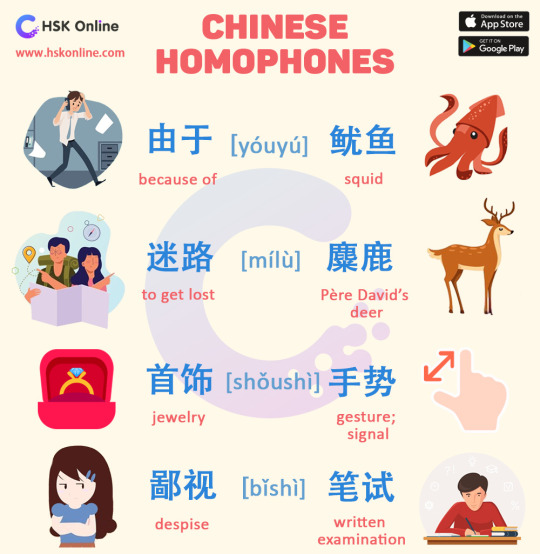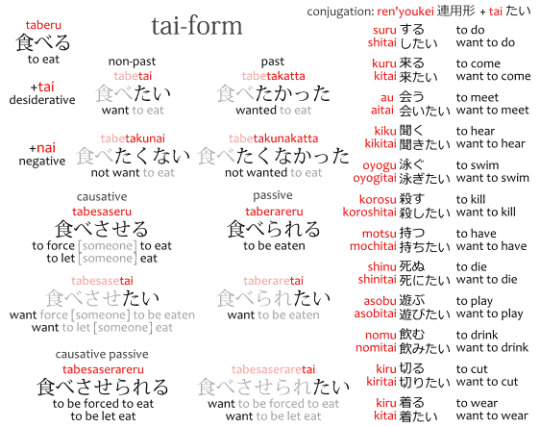Photo

Welcome vocabulary list
いらっしゃいませ (irasshaimase) - Welcome used in shops
歓迎: かんげい (kangei) - Welcome/ reception
迎え: むかえ (mukae) - meeting/ greeting/welcome
有難い: ありがたい (arigatai) - grateful/ thankful/welcome/appreciated/ evoking gratitude
接待: せったい (settai) - reception/ welcome/ serving (food) /wining and dining/ business entertainment/ corporate entertainment/ entertaining politicians
優待: ゆうたい (yuutai) - preferential treatment/hospitality/warm reception/ welcome
耳より: みみより (mimiyori) - welcome (news)/ inviting/encouragingtempting/ hopeful
奉迎: ほうげい (hougei) - welcome
接遇: せつぐう (setsuguu) - reception, welcome
迎い: むかい (mukai) - meeting, greeting, welcome
どういたしまして (douitashimashite) - you are welcome, don’t mention it, not at all, my pleasure
お帰りなさい: おかえりなさい (okaerinasai) - Welcome home
もてなす (motenasu) - to entertain/ to make welcome
優遇: ゆうぐう (yuuguu) - favorable treatment/favourable treatment/ hospitality/warm reception/good treatment/ hearty welcome
ようこそ (youkoso) - welcome!/nice to meet you!
厚遇: こうぐう (kouguu) - cordial welcome/ hearty welcome/kind treatment/ hospitality
歓待: かんたい (kantai) - warm welcome/friendly reception/ hospitality/ entertainment
歓送迎会: かんそうげいかい (kansougeikai) - party to welcome (e.g. new employees) and send off (e.g. retiring employees)
新歓コンパ: しんかんコンパ (shinkankonpa) - welcome party for new students, club members, etc.
下にも置かない: したにもおかない (shitanimookanai) - giving a royal welcome/extending every courtesy
1K notes
·
View notes
Text
面白いね😲
👿 怨霊⚱️
怨霊> onryou
The 怨霊 is the classic Japanese ghost - the spirit of a person (usually a woman) who either died violently or was wronged in life without justice. They come back from the dead from the power of pure anger, ready to fuck shit up for everyone unlucky enough to cross their path.
怨霊 are feared because they don’t simply kill their victims; they actually allow them to live long, natural lives, but ones filled with torment and suffering.
The most famous 怨霊 (aside from Sadako, of The Grudge) is a woman named Oiwa, whose curse is so strong that anyone who even tells it is said to become sick or injured later.
No one is quite sure if Oiwa ever really existed, but the curse surrounding her story is so thoroughly believed that she was given a formal grave in Tokyo. Whenever her story is adapted to media (as it’s been dozens of times), it’s tradition for the cast and crew involved to visit her grave and leave offerings in order to beg for everyone’s safety.
74 notes
·
View notes
Text
Japanese speaking practice for the shiest pt. 1
Do you like anime?
アニメが大好きだか。
あにめ が だいすき だ か。
Anime ga daisuki da ka.
What is your favourite food?
あなたの一番好きな食べ物は何だか。
あなた の いちばん すきな たべもの は なん だ か。
Anata no ichiban sukina tabemono wa nan da ka.
Where is your workplace?
あなたの 職場 はどこですか
あなた の しょくば は どこ です か。
Anata no shokuba wa doko desu ka.
For you, is it fun to study?
あなたにとって、勉強するのは楽しいですか。
あなた に とって、 べんきょうするの は たのしい です か。
Anata ni totte, benkyousuruno wa tanoshii desu ka.
Who is that person?
あの人は誰?
あの ひと は だれ?
Ano hito wa dare?
Keep reading
103 notes
·
View notes
Text
For Japanese Learners: How to Agree/Disagree in Japanese
Took this list from www.JapanesePod101.com - check them out if you’re interested in learning more japanese and more lessons.
Absolutely.
全くその通り。 ��Mattaku sono tōri.
Maybe.
多分ね。 Tabun ne.
Yes, you’re right.
はい、正しいと思います。 Hai, tadashii to omoimasu.
I couldn’t agree with you more.
全く同感です。 Mattaku dōkan desu.
That’s exactly how I feel.
私も同じ考えです。 Watashi mo onaji kangae desu.
Exactly.
その通りです。 Sono tōri desu.
No doubt about it.
間違いありません。 Machigai arimasen.
You have a point there.
それは一理あると思います。 Sore wa ichiri aru to omoimasu.
I was just going to say that.
今、言おうと思っていました。 Ima, iou to omotte imashita.
I guess so.
そうだと思います。 Sō da to omoimasu.
Well, I’m not sure.
そうですね。ちょっと分かりません。 Sō desu ne. Chotto wakarimasen.
I don’t disagree with you.
間違っているとは思いません。 Machigatte iru to wa omoimasen.
If you say so.
そう言うのなら。 Sō iu no nara.
You’re wrong!
それは違います! Sore wa chigaimasu!
I don’t think so.
そうは思いません。 Sō wa omoimasen.
I’m afraid I disagree.
賛成しかねます。 Sansei shikanemasu.
That’s not always the case.
必ずしもそうとは限りません。 Kanarazu shi mo sō to wa kagirimasen.
What do you think?
どう思いますか。 Dō omoimasu ka.
Can I add something here?
少し補足してもいいですか。 Sukoshi hosoku shite mo ii desu ka.
Let’s just move on, shall we?
次の議題に移りましょうか。 Tsugi no gidai ni utsurimashō ka.
I think we’re going to have to agree to disagree.
意見の相違は仕方がないと思います。 Iken no sōi wa shikata ga nai to omoimasu. I think we’re going to have to agree to disagree.
I agree.
賛成です。 Sansei desu.
Of course.
もちろんです。 Mochiron desu.
That’s true.
確かにそうですね。 Tashika ni sō desu ne.
I don’t agree. No.
賛成できません。 Sansei dekimasen.
11K notes
·
View notes
Photo
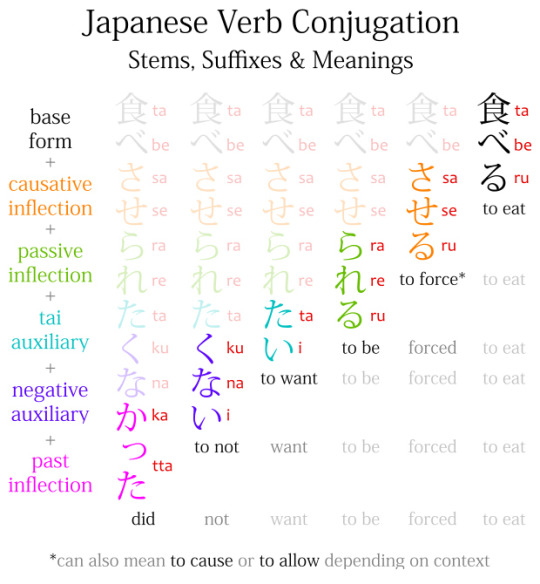

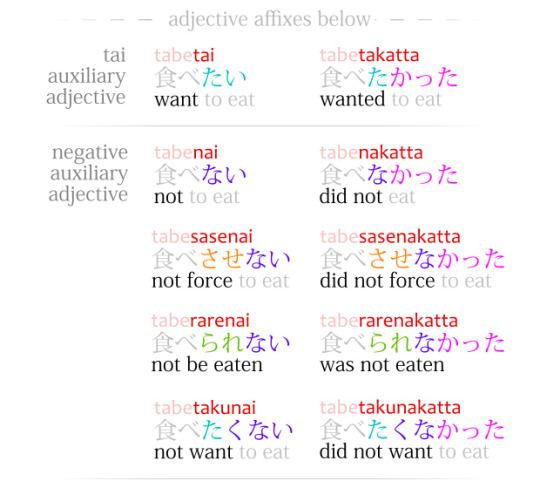

Article: Verbs in Japanese - How do They Work? - Conjugation Grammar
3K notes
·
View notes
Text
Words of the day - 航海

航海「こうかい」 - voyage, cruise
航海術「こうかいじゅつ」- (the art of) navigation
大航海時代「だいこうかいじだい」- the Age of Discovery
航海図「こうかいず」- nautical chart
航海日記「こうかいにっき」- logbook, log
航海者「こうかいしゃ」- seaman
149 notes
·
View notes
Photo

Expressing Your Emotions || 感情・かんじょう・Emotions
Hey guys, today I’m going to list a couple different ways to express your emotions or feelings in conversation in Japanese!
Adjectives・形容詞「けいようし」:
Amazing・凄い・すごい
Afraid・こわい
Bad・悪い・わるい
Difficult (emotionally)・辛い・つらい
Embarrassed・恥ずかしい・はずかしい
Fun・楽しい・たのしい
Happy・嬉しい・うれしい
Jealous・羨ましい・うらやましい
Sad・悲しい・かなしい
One adjective which might appear often in conversation is the word 「ヤバい・ヤバイ・やばい」which can be used to express a few different emotions depending on the context. I’ve heard it used to express both positive and negative emotions/feelings/thoughts like: dangerous, terrible, crap, awful, amazing, wow, cool.
Nouns・名詞「めいし」:
Anger・怒り・いかり
Delight/Joy・喜び・よろこび
Emotions・感情・かんじょう
Feelings・気持ち・きもち
Feeling/Mood・気分・きぶん
Happiness・幸せ・しあわせ
Sadness・悲しみ・かなしみ
Examples・例「れい」:
Below I’m going to list a few examples of how to express your feelings in Japanese. It’s important to know that you don’t have to use 私は/僕は/俺は/etc. before stating your feeling because it’s obvious in the context that you’re expressing your own emotions!
Angry・Annoyed -
ひどい!・You’re awful/mean OR That’s awful!
ひどーーい!・You’re aaaawful! OR That’s aaaawful!
ムカつく!・むかつく!・I’m pissed off.
イライラする!・I’m irritated!
ウザイ・Annoying!
ちぇっ・チェ・tsk/Dang/Shoot
Confused -
どうしよう?・What am I gonna do?
Difficult -
辛い・つらい・It’s hard.
きつい・It’s hard.
Embarrassed -
あー、恥ずかしい!・あー、はずかしい!・I’m so embarrassed!
Happy -
嬉しい!・うれしい!・I’m happy!
嬉しいなあ!・うれしいなあ!・I’m so happy!
あー幸せ!・あーしあわせ!・I’m so happy!
やった〜!・Yay!
イェーイ!・Yaaay!
楽しい!・ How fun!
楽しすぎる !・Way too fun!
ワクワクする !・I’m getting excited!
わあ!・Wow!
すごい!・Wow/Great!
すごーい!・Woow!
すげえ!・Wow!
Jealous -
羨ましい!・うらやましい!・I’m jealous!
羨ましい―――!・うらやましいーーー!・I’m soooo jealous!
Nervous -
ドキドキする!・I feel nervous!
緊張する!・きんちょうする!・I’m nervous!
不安になる・ふあんになる・I’m anxious
Nostalgic -
懐かしい!・なつかしい!・This brings back memories.
Relieved -
安心した!・あんしんした!・I feel relieved.
よかった!・Whew!
あー、よかった!・I’m relieved!
Sad・Lonely -
悲しい!・かなしい!・I’m sad
泣きたくなる!・なきたくなる!・I feel like crying!
寂しい・さみしい/さびしい・I’m lonely
あーあ…・Oh well…
くすん・ぐすん・Sniffle
Scared -
びくびく・Symbolises being afraid or timid.
こわい!・I’m scared!
Shocked・Surprised -
うそ!・No way!
マジ?・まじ?・Really/No way/Seriously?
マジかー?・まじかー?・Really/No way/Seriously? (a little masculine)
マジで?・まじで?・Really?
えーー!うそ、マジで!?・What? No way!
え!・What?/Really?
えー!・What?/Really?
えーーっ!!・What?/Really?
うわー!・OMG
いや・イヤ・Why?/Oh
いややあー・Whyyy?
ありえない!・No way!/I can’t believe it!
信じられない!・��んじられない!・I can’t believe it!
皆さん、今どんな気持ち?
Everyone, how are you feeling right now?
7K notes
·
View notes
Text
Human Body | 人体

1. Human Body: 人体 [réntǐ]
2. Body: 身体 [shēntǐ]
3. Head: 头部 [tóubù]
4. Neck: 颈部 [jǐngbù]
5. Face: 脸 [liǎn]
6. Forehead: 额头 [étóu]
7. Eye: 眼睛 [yǎnjīng]
8. Eyelash: 睫毛 [jiémao]
9. Eyebrow: 眉毛 [méimao]
10. Cheek: 脸颊 [liǎnjiá]
11. Ear: 耳朵 [ěrduǒ]
12. Ear lobe: 耳垂 [ěrchuí]
13. Nose: 鼻子 [bízi]
14. Nostril: 鼻孔 [bíkǒng]
15. Mouth: 嘴巴 [zuǐbā]
16. Lips: 嘴唇 [zuǐchún]
17. Chin: 下巴 [xiàba]
18. Tongue: 舌头 [shétou]
19. Tooth: 牙齿 [yáchǐ]
20. Hair: 头发 [tóufǎ]
21. Skin: 皮肤 [pífū]
22. Muscle: 肌肉 [jīròu]
23. Bone: 骨骼 [gǔgé]
24. Articulation: 关节 [guānjié]
25. Arm: 手臂 [shǒubì]
26. Shoulder: 肩膀 [jiānbǎng]
27. Pulse: 手腕 [shǒuwàn]
28. Belly: 腹部 [fùbù]
29. Belly button: 肚脐 [dùqí]
30. Leg: 腿 [tuǐ]
31. Thigh: 大腿 [dàtuǐ]
32. Knee: 膝盖 [xígài]
33. Foot: 脚 [jiǎo]
34. Ankle: 脚踝 [jiǎohuái]
35. Elbow: 肘部 [zhǒubù]
36. Back: 背部 [bèibù]
1K notes
·
View notes
Photo
Very helpful for the grammar challenged like me!

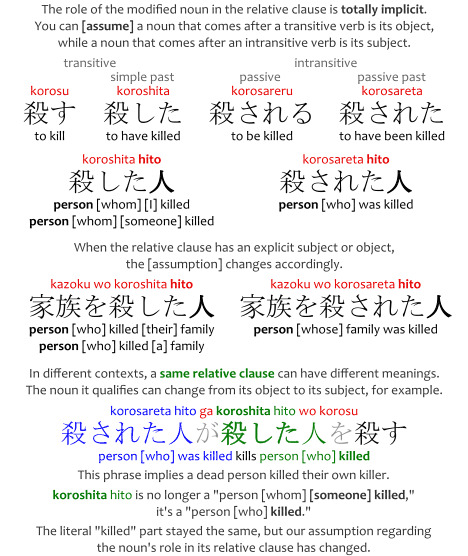
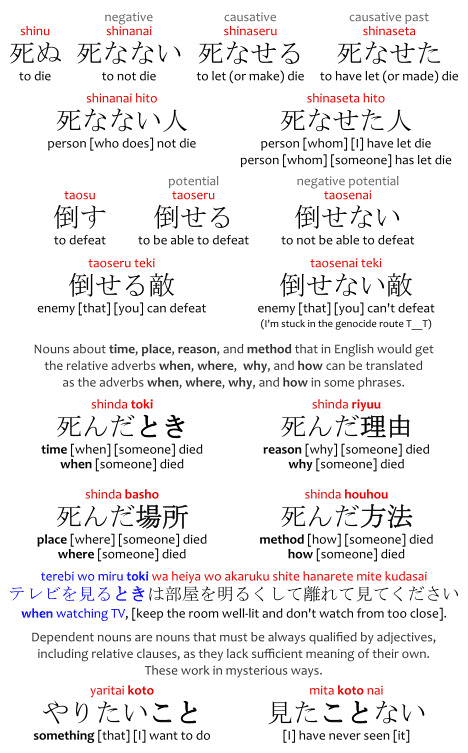
940 notes
·
View notes
Text
Totally relatable! Just stay in your Lane and keep moving forward, the only person to compare yourself to is yourself😉
HOW TO OVERCOME FEELING INFERIOR TO OTHERS
Feel inferior? Yeah, I do too sometimes. While it’s totally natural to feel inferior to others sometimes, it can really feel like fat crap. What should you do about these feelings? Should you give up? Hate the person you feel inferior to? In this post I share my personal experience with feeling inferior to other language speakers (not native speakers of my target language) and real practical advice about what to do and how to deal with these feelings.
My Experience
When it was time for my evaluation at my summer language intensive at PIB. Only a day after arriving (they did not mess around at this program), I found myself in front of the evaluators jet lagged, tired, hungry and incapable to forming words. Twiddling with my thumbs instead of producing sentences because I was unable to control my nervousness. There was a panel of roughly seven teachers staring at me blankly from across a round table with me at the end facing them directly. It felt like I was on trial or worse, my entire worth being judged like meat at an auction. I ended placing with the 2nd years, which is the lowest level they offered and I felt crushed at first, but I didn’t let it get to me. Then I met the others,…
Keep Reading
96 notes
·
View notes
Text
ASKING ABOUT JAPANESE (IN JAPANESE)
****If there are corrections or additions I should make to this list, please send me a message!****
So I just started using HelloTalk for Japanese, and found out pretty quickly that asking people to help you IN Japanese gets you MUCH better answers so long as you’re up to the challenge of figuring out slightly more complicated explanations! Here are some ways to do that:
THINGS TO ASK
Can I ask you a question?
ちょっと質問していいですか?
How do you say “_____” in Japanese?
「___」は日本語で何と言いますか?
日本語で「___」はどうやって言いますか?
What does “_____” mean?
「___」の意味はなんですか?
「___」って、どういう意味ですか?
Could you please correct my sentences/check them for errors?
文章を直してください/くれませんか/もらえませんか
間違いがあるかどうかチェックしてもらえますか?
What is the difference between “__” and “__”?
「__」と「__」の違いは何ですか?
Which one sounds more natural?
どちらがもっと自然に聞こえますか?
どちらの方が自然ですか?
What kind of situation should I use it in?
どんな場合に使いますか?
Is there another way to say it?
日本語で同じような言い回しがありますか?
How would you say it?
___さんなら、これを何と言いますか?
Do people normally use this word/phrase?
このフレーズ/言葉を普段使いますか?
How do I use (this word/phrase)
「___」をどうやって使いますか?
Is it similar to/Is it like “_____,” for example?
「___」という事ですか?
「___」と同じような意味ですか?
AND IF U DIDNT REALLY GET THEIR CORRECTIONS/COMMENTS:
I’m sorry, I didn’t really understand “_____.” Could you explain it to me?
(すみません、「___」はよく分からなくて)、ちょっと説明してもらえませんか?
I’m sorry, would you mind explaining your corrections?
すみません、訂正を説明してもらえませんか?
OTHER TIPS
Say thank you afterward!
The sentences above are mostly starting points. The more you talk to people, the more you’ll notice how people ask things like “Oh, can you explain that thing on the bottom?” or “So it’s okay if I say this instead of this?” etc. etc. But these sentences will help you get on your feet!
What I sometimes like to do if they’re using really complicated Japanese to explain to me, it try to explain it in my own words and then add っていうことですか? to find out if I’m understanding right!
Challenge yourself by answering Japanese-speakers’s questions in Japanese! You’d be surprised how much you can learn about explaining just by reading explanations!
Good luck! Please let me know if you have any questions! <3
頑張ってください!皆さん何か聞きたいことがあったら、何でも聞いてくださいね!<3
-Maka
3K notes
·
View notes
Text
Grades don’t determine your intelligence.
Grades don’t determine your intelligence.
Grades don’t determine your intelligence.
Grades don’t determine your intelligence.
18K notes
·
View notes
Link
As we transition into the bitter cold of winter, and you’re stuck inside with a hot cup of cocoa under a fuzzy blanket, you have plenty of time to check out the new Japanese learning resources from November!
This month we found some solid apps and ways to take advantage of all the games you’re already playing. Take advantage of these dark, cold months with some Japanese! Unless you’re in the Southern Hemisphere, in which case, good luck with that heat—or go inside and study some Japanese in the AC. ;)
ReadNihon
Tae Kim’s Guide to Learning Japanese: App
Manabi Reader
Kanji Garden
Lingodeer: Japanese 2
Let’s Go Pikachu/Eevee
Deltarune: Japanese
Read more!
233 notes
·
View notes
Text
How to Make Your Chinese Sound Native (Part I)

Welcome to part I of commonly used word pairs. This is one of the best ways to improve your Chinese and help your speaking sound more native. Let’s look at various “递进关系 (dìjìn guānxì) progressive relationships” and “转折关系 (zhuǎnzhé guānxì) transition relationships” between words. These are very common to use in sentences for everyday conversation. By learning these commonly associated words you can get closer to sounding native faster than ever!
1. “不但 (Búdàn)” …. “而且 (érqiě)”
There are a few ways to express “not only … but also”, in Chinese. One way is to add “不但 (búdàn)” …. “而且 (érqiě)” in a sentence. Put the sentence this way: Noun + 不但 (búdàn) + A, 而且 + B. Adjectives, verbs or phrases could be used in place of A or B.
For example:
Tā búdàn hěn piàoliang, érqiě hěn cōngmíng.
���不但很漂亮��而且很聪明。
She is not only beautiful but also intelligent.
(The Different Ways to Say “因为 (yīnwèi) BECAUSE”and “所以 (suǒyǐ) SO” in Chinese)
2. “不仅 (Bùjǐn)”…..“还 (hái)…..”
The next way to express “not only … but also” is “不仅 (bùjǐn)”…..“还 (hái)…..” The pattern can also be used omitting “还 (hái)”, and instead using adverbs like “也 (yě) and also” in its place.
The structure for this is: Subj. + 不仅 (bùjǐn), 还/也 + …
The same subject should apply to both the first and the second part to use it properly.
For example:
Tā bùjǐn huì shuō yīngyǔ, hái huì shuō fǎyǔ.
他不仅会说英语,还会说法语。
He not only speaks English but also speaks French.
3. “虽然 (Suīrán)”…”但是 (dànshì)…”
Next, let’s look at “转折关系 (zhuǎnzhé guānxì) transition relationship” words to use as well. First is: “虽然 (suīrán) although”…”但是 (dànshì) but…”
You can think of it as meaning “although,” but unlike in English, you still need to follow it with a “but” word in Chinese. The structure is easy: “虽然 (suīrán) ⋯⋯, 但是 (dànshì)⋯⋯”
To properly use it, know that “虽然 (suīrán)⋯⋯ 但是 (dànshì)⋯⋯”, expresses that, while the former part of the sentence is true, there is an adverse reaction in the…
…for more information on speaking Chinese like a native, you can READ THE FULL LESSON HERE!
852 notes
·
View notes
Photo

October/Halloween Vocabulary 十月とハロウィーン
十月: じゅうがつ (juugatsu) - October/ month 10
十月十日: とつきとおか (totsukitooka) - babies born on October 10, supposedly conceived on New Year’s Day/ normal gestation time (i.e. 9 months)
秋: あき (aki) - autumn/ fall
草枯れ: くさがれ (kusagare) - autumn/ withering of the grass
秋日: しゅうじつ (shuujitsu) - autumn day/ autumn
紅葉: こうよう (kouyou) - autumn colors/ leaves changing color/ leaves turning red/ red leaves/ leaves turning yellow/ yellow leaves
紅葉: もみじ (momiji) - (Japanese) maple (Acer japonicum)/ venison
秋季: しゅうき (shuuki) - autumn season
秋風: あきかぜ (akikaze) - autumn breeze
秋色: しゅうしょく (shuushoku) - autumn scenery
紅葉狩り: もみじがり (momijigari) - autumn-leaf viewing
オカルティック (okarutikku) - occult/ spooky/ eerie
気味悪い: きみわるい (kimiwaru) - unpleasant/ uncomfortable/ creepy/ spooky
お化けの話: おばけのはなし (obakenohanashi) - spooky tale/ ghost story
物の怪: もののけ (mononoke) - (vengeful) ghost/ specter/ spectre
鬼: おに (oni) - oni, ogre, demon/ spirit of a deceased person/ ogre-like person (i.e. fierce, relentless, merciless, etc.)
魔: ま (ma) - demon/ devil/ evil spirit/ evil influence/ someone who habitually performs some negative act
魔女: まじょ (majo) - witch
南瓜: かぼちゃ (kabocha) - pumpkin (Cucurbita species)/ squash
お菓子: おかし (okashi) - confections/ sweets/ candy
キャンディ (kyandi) - candy
コスプレショー ( kosupuresho) - costume party
コスチュームプレー (kosuchu-mupure-) - cosplay/ period drama, costume drama, costume play
2K notes
·
View notes
